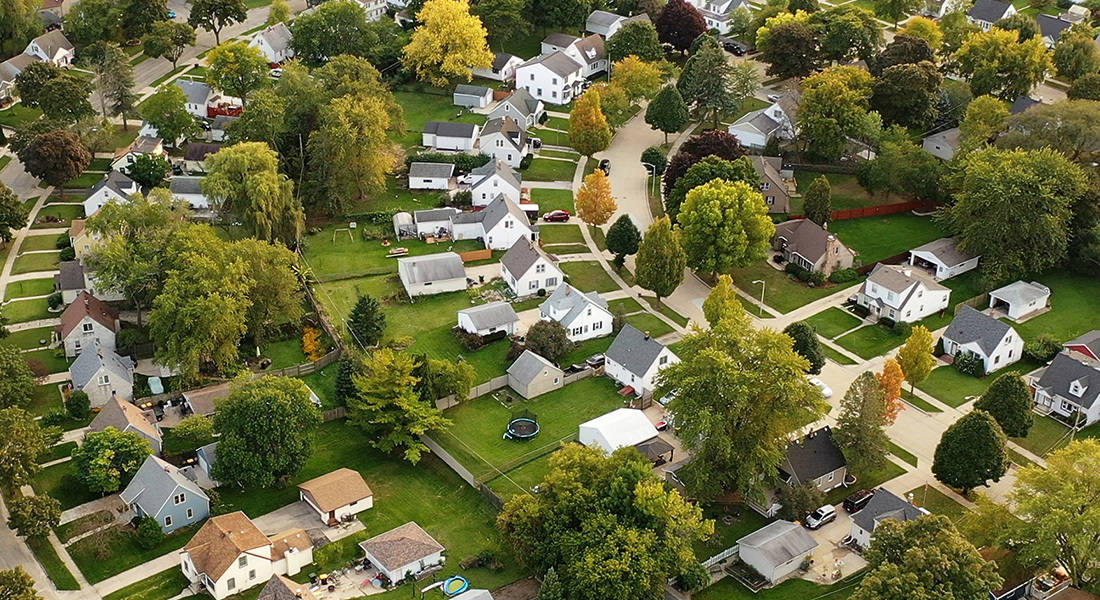5 Questions to Know if Real Estate Geo Farming is Right for You
Before we dive into any of the questions you need to ask yourself before starting your geo farm, let’s start off with WHY geo farming is so important…
Simply put, geo farming is effective because in real estate, there’s nothing quite as important as relationships and reputation. Success in this business comes from being known, liked, and respected, but that doesn’t mean you need to be some kind of nationally known celebrity. Actually, it’s almost the opposite…
You just need to be the celebrity of YOUR PARTICULAR AREA when it comes to anything involving real estate. The more focused your efforts, the more effective you can be.
That’s what a farm is all about, but to be fair, it’s not for everyone. When it comes to real estate lead generation, sources are like clothes, and what fits one agent might not fit another.
That’s why in this blog, I’ll break down exactly what geo farming is, give you some questions to decide if it’s a fit for you, and offer some tips to get started!
Let’s dive right in…
What is Geo Farming?
Geographic farming is when a real estate agent takes a hyper-focused approach to marketing in a specific geographic area. This could be a neighborhood of as little as 100 homes and as many as tens of thousands.
It’s a combination of different marketing tactics, including but not limited to:
- Direct mail
- Community events
- Door knocking
- Keepables (refrigerator magnets, coffee table books, etc…)
- Email newsletters
The point of geo farming is basically to become the face of your community. When someone in one of these neighborhoods thinks about real estate, they think about you.
So, here’s the big question… Does geo farming work?
Yes! Yes, it absolutely works! But only if you have the right resources to get started and tend to your farm in the right way. With that said, let’s ask those questions to see if it’s right for you.
Question No. 1: Is There a Geo Farm Open?
There are no “designated geo farms.” It’s not like there’s some website you can go to which will show you the boundary lines of “District 72: Farm 11” or anything like that. You draw your own lines, but that being said, there are a lot of things to consider.
The boundaries of your farm must make sense because you’re going to be using the same marketing for every home in the farm. Make sure the homes in your farm are at relatively the same price point (or at least not radically different). Determine if the content of your newsletter would be relevant to everyone in the farm. A great way to find a farm is to look for areas that would all go to the same school.
Once you find a good area, you need to establish if there’s room there for you. There’s no point in trying to move into a farm where another agent already has their dominance established. Firstly, because it won’t be as effective, and secondly because it’s just bad taste. There’s a rule in fishing that you shouldn’t cast your net out in front of someone else’s, and in this case, you should show the same kind of respect.
If one agent or team controls more than 30% of a given area, you’re likely taking on a difficult and expensive battle if you choose to market yourself there.
So hit the streets and see what you can find. If nothing jumps out to you right away, this might be a great area to put your plow down.
Question No. 2: Can You Afford the Upfront Costs of Geo Farming?
In most cases, reputation doesn’t come cheap these days. Geo farming requires a significant financial investment because most of your marketing comes in a physical form instead of free social media posts. Sending out a postcard isn’t going to break the bank but sending out 10,000 postcards every few weeks can add up quickly.
One of the biggest opportunities of having a geo farm is throwing awesome community events which make you the most loved person around – but depending on what type of event you organize, this can also rack up significant expenses.
Don’t get me wrong… if you can afford it, it’s totally worth it! Not only is it fun, but the ROI for the parties you throw can be massive. Dave Archuletta out of Rancho Mission Viejo, who has only been in the business for three years, did nearly $80 million in volume last year off these events alone!
Question No. 3: Is Your Personality Right for Geo Farming?
We’ve already established that the point of geo farming is to become the face of your community. It makes you the celebrity of the neighborhood, the fun person who is always willing to help and support everyone in any way you can.
That’s what every agent wants, right?
Well, in theory, yes. But maybe not in practice.
You have to be comfortable putting your face absolutely everywhere and be prepared to have conversations at the grocery store.
Also, not everyone likes throwing parties. Do you?
Question No. 4: Do You Match Your Clientele?
You don’t need to be a millionaire to sell homes to millionaires – but it helps, a lot.
People of different geographical and economic positions have fundamentally different concerns and interests. They hang out in different places, have different hobbies, and appreciate different kinds of parties.
You can’t be the face of a community if you don’t have anything in common with the community, which is a reason why it often helps if you live in the farm where you’re working.
If there’s a country club that a lot of your prominent community members attend, you better be sure you can get into that club – and that you enjoy going there. Authenticity goes a long way, and you don’t need to pretend to be someone you’re not in hopes of getting a sale.
Question No. 5: Do You Have Patience?
This one is a biggie…
Geo farming is not something that instantly pays off. In some instances, it could take years to establish a firm grasp over a farm, but once you have it, the returns are well worth the effort.
At the end of the day, farming is a long-term strategy. Keep that in mind whenever your optimism begins to waver.
Best practices for a real estate geo farming plan
Geo farming is as much an art as it is a science. Here are some additional tips to get you prepared for what farming requires from you.
Know what sellers want
Know your audience if you want to sell to your audience!
This goes right back to question four, but it also relates directly to why your potential clientele often decide to move. Do your research on the area and be sure to download this free resource that will help you identify what sellers are looking for in an agent.
Send postcards
Postcards are timeless. They’re not going out of style any time soon, especially when it comes to geo farming. But that said, what used to work on your cards might not have the same effect as it once did.
To help you improve your postcards and all direct mail pieces, check out this free case study covering some effective strategies, including a budget and templates that will get you a 5X ROI.
Host client events and join neighborhood organizations
Your first step is to begin building those relationships. See what kinds of organizations you could join:
- PTA
- Organizations for any religion you may belong to
- Country clubs
- Charity drives
- Holiday festivals
Once you have your network going, see what kinds of special events you can organize for your past clients – and their networks!






